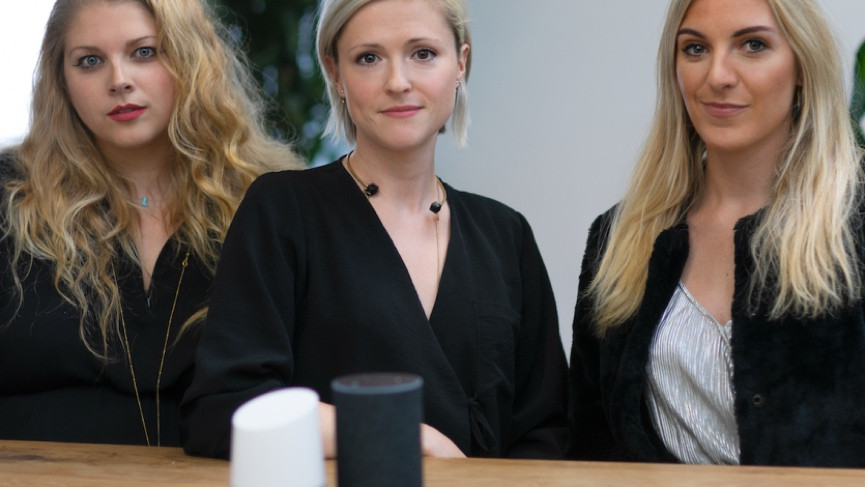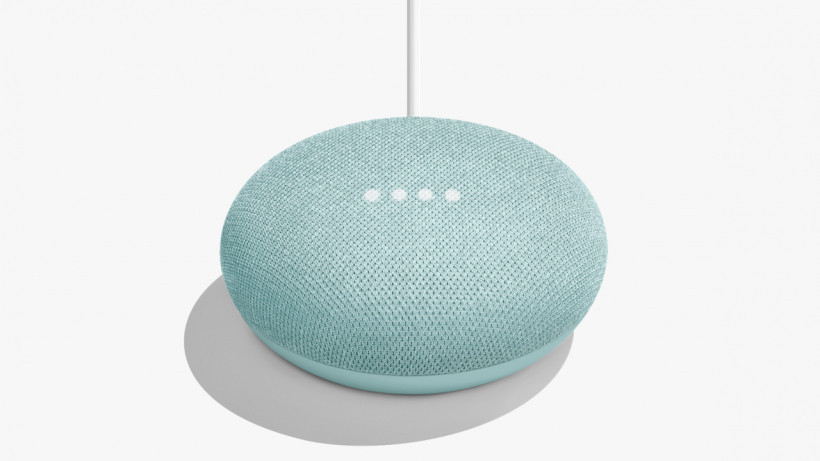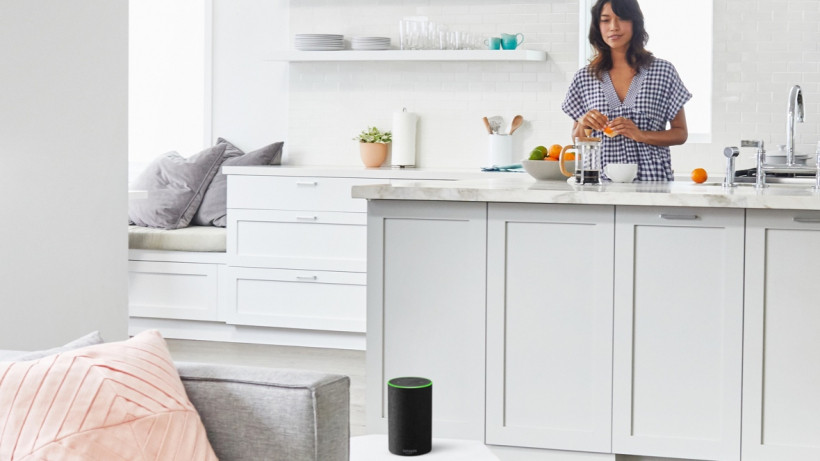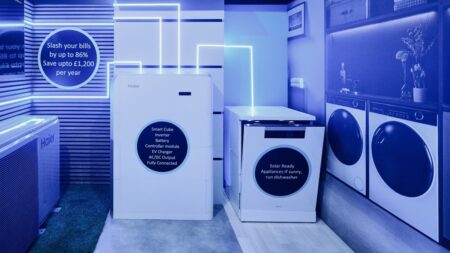Mindscape is designed to offer calm and conversation in moments of panic
“We’ve never felt so isolated and alone, that’s what research suggests, and technology is often blamed for that,” says Jen Heape, a creative technologist behind Mindscape, a new free therapy skill for Amazon Alexa and Google Home. “So, I thought, OK, that’s true, but we can’t take it away now it’s here. How can we turn it around and get it to help us more?”
Heape says that while there are lots of apps offering therapy and meditation that are accessed on smartphones, using them can mean that you end up getting “sucked back into the Instagram vortex” and potentially feeling even worse. Voice, she argues, offers a way of interacting with mental health support in a way that is away from screens and fundamentally intuitive.
A digital health tool that works
Along with her colleague, Cat Turner, co-founder of CULT, a digital agency in London, they decided to try and experiment with that idea, inspired by the conversations they were having with friends, family and colleagues about mental health, particularly anxiety. It became a side project – the pair normally use their copywriting and digital skills to create online campaigns for clients – but they also wanted to spend some time working on something not-for-profit.
Read this: The hidden voice signals your smart speaker could be listening to
The product Heape and Turner decided upon is a voice assistant that can provide therapy. It starts with breathing exercises, then asks questions and offers advice which has been coded in, using AI to become more responsive based on the history of the user. Part of the impetus behind the project is the strain on the NHS which so often hits the headlines, and the duo also finds it strange that there is an apparent lack of adoption so far of digital tools that offer health-related advice. Heape cites government research finding that while 60 per cent of adults have a smartphone, only two per cent have a meaningful digital interaction with the NHS.
The music agency MassiveMusic created the sound element for Mindscape – you can choose what you want to hear following the breathing and therapy sessions. If you are trying to fall asleep you can choose sound designed to help with that, or if you want to motivate yourself you can go for something more upbeat. The tech development company Voxly Digital handled the coding and the skill has been created specifically so that more information can be added in later, in response to user feedback.

Work, sleep and money problems
“We don’t capture any data on individual users at all,” Heape says, citing the obvious privacy concerns that might come about when accessing therapy through a voice assistant. “But we can see what the trigger words are, we can see the topics that people say that they are stressed about most when interacting with the app.” That means if a topic is coming up again and again, they can go away and work on adding information about that in.
It’s an important thing to get right. Heape and Turner worked with the mental health charity Mind in Haringey, to help identify which topics they should focus on and create something suitable. There are currently 10 broadly defined categories of common problems that the assistant can give advice and information about – things like work, sleep or money. “Work has three sub-categories, workload, difficult working relationships, and work-life balance. There’s also information on dealing with exam stress for students, for example.”
Staff at Mind helped to identify who might benefit from using the app too. It’s aimed at people dealing with everyday stress, who might not necessarily identify as suffering from a mental health disorder, and for people who are aware they suffer from anxiety and are actively looking for tools to help them. It should not be seen as a replacement for professional support for people with serious mental health problems, however.
“It’s not intended to replace human interaction or clinical help – dear God no!” Heape says. “It’s there for when there’s a gap perhaps, if you’re having a panic attack at 4am and there’s no one to call or perhaps you don’t want to call someone.”

Tweaking voice assistant tones
The teams developed a voice that is calming and questioning, rather than seeking to assess or make a judgement about what someone is going through. “We’ve been careful to not ever label how someone is feeling. For example, she wouldn’t say, ‘what are you suffering from anxiety from?’ Instead it would be, ‘what are you worrying about?’”
Working with the limitations of voice technology proved an interesting challenge. “By deciding to work with the original voices of Alexa and Google Assistant, we had to go in and make changes in SSML (speech synthesis mark-up language) to work on the tone and intonation to get her to speak in a certain way, which created more work for us” Heape says. “We needed to get the tone right.”
CULT and their collaborators are hoping that by offering some help to people in distress, they can add something positive to the wave of development in voice technology. Heape is excited about what the future holds: “The curve of adoption has been really fast, almost faster than the content available through these devices” she says, “I think next we’ll see it become more interactive and in depth – just look at the rise of audio and the unexpected success of podcasts. I think we are going to see the technology become really rich.”
To get Mindscape for Alexa, say “Alexa, open Mindscape.” For Google Assistant, say “Hey Google, talk to Mindscape” to launch the skill.





